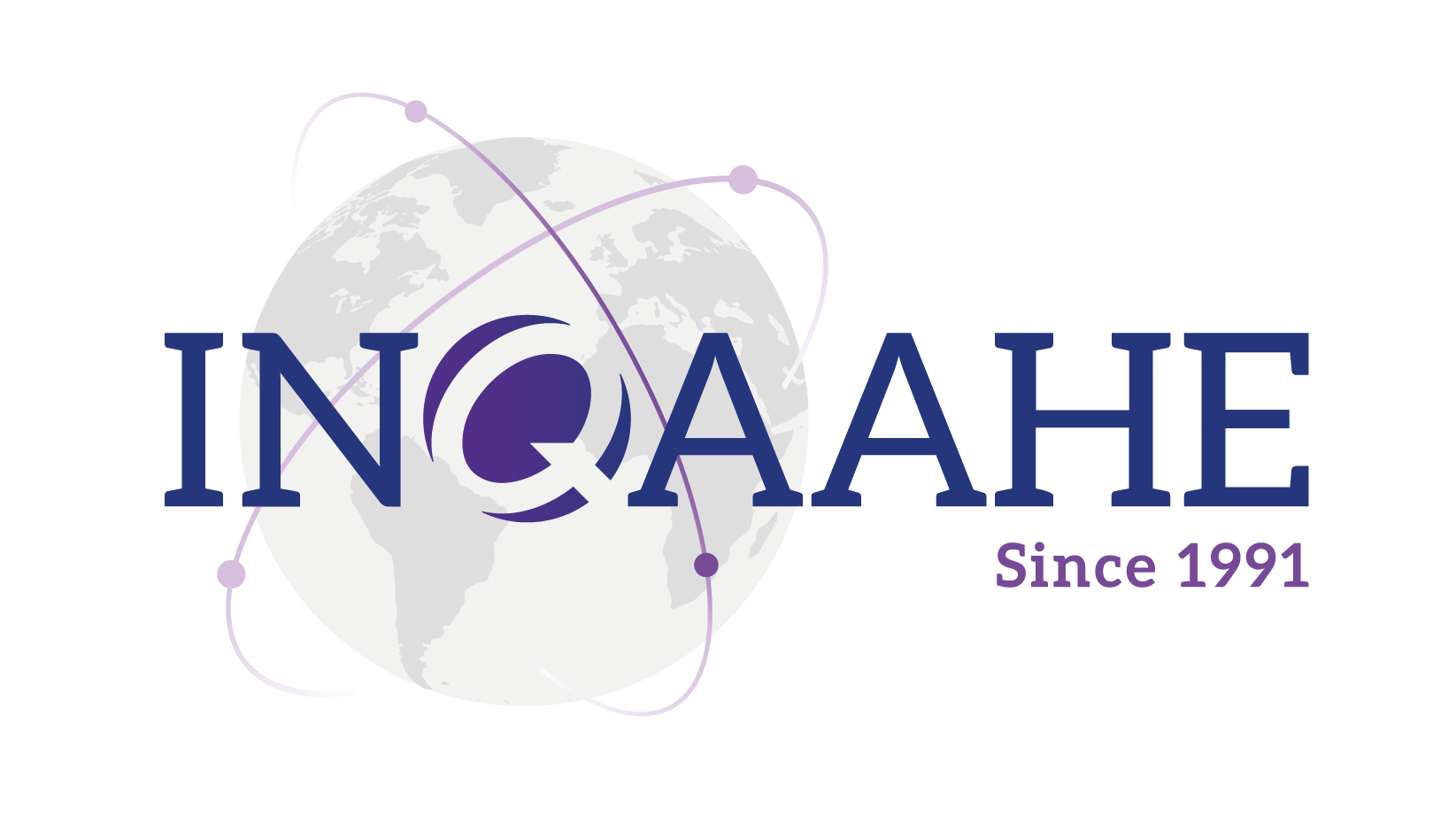Mission and Values
The International Network for Quality Assurance Agencies in Higher Education (INQAAHE) is a world-wide association of organisations that is active in the theory and practice of quality assurance (QA) in higher education (HE).
The greater majority of its members are quality assurance providers (as Full members) that operate in many different ways. However, the Network also welcomes (as Associate member) other organisations that have an interest in QA in HE, and individuals with major interest in HE (as Affiliates). INQAAHE thus offers its members the many benefits of being part of such an active group of workers in QA in HE.
INQAAHE was established in 1991 with only 8 members. Today the total membership exceeds 300 members. Tertiary Education (TE) has dramatically changed over the last decades. Distance education as well as vocational education have become increasingly more important as is the need for recognition of prior learning. TE has become more global than ever before. Professional accreditation has become more important as more tertiary education institutions (TEI) delivering programs in different modes enter the market. All these have thrust the QA providers into ever expanding roles.
INQAAHE is a QA community, with shared interests, a common language and an understanding of how things are done with regard to a very specific field of work. It provides a forum for the discussion of global issues that go beyond national or regional boundaries, such as cross border education. Members have the opportunity to learn from what others are doing, both from their successes and their failures, and thus have now set the ground for the development of a QA profession.
MISSION
The central purpose and role of INQAAHE is to promote and advance excellence in tertiary education through the support of an active international community of quality assurance providers. In order to achieve this goal, the network focuses on the development of the theory and practice of quality assurance, the exchange and understanding of the policies and actions of its members, and the promotion of quality assurance for the benefit of tertiary education, institutions, students and society at large.
VALUES
Fundamental to the work of the Network are the key values that support the policy and practice of quality assurance:
- Recognition of the value of the collective wisdom gathered from the practices of a diverse set of members, and their ability to address the challenges of the educational and social structures in which they operate. INQAAHE celebrates this diversity, which has also made it possible to identify and highlight commonalities and fundamental principles that underpin good practice and guide the operation of Quality Assurance (QA) providers.
- Belief in the primacy of academic freedom and institutional integrity, and a commitment to the idea that quality and quality assurance are primarily the responsibility of tertiary education institutions themselves.
- A fundamental understanding of the importance of working in partnership – among members, with tertiary education institutions, regional, international government and nongovernment organizations as well as the business sector – in order to provide member support, guidance, information and advocacy for quality assurance.
PURPOSES
- To create, collect and disseminate information on current and developing theory and practice in the assessment, improvement and maintenance of quality in tertiary education.
- To undertake or commission research in areas relevant to quality in tertiary education.
- To express the collective views of its members on matters relevant to quality in tertiary education through contacts with international bodies and by other means.
- To promote the theory and practice of the improvement of quality in tertiary education.
- To provide advice and expertise to assist existing and emerging quality assurance providers.
- To facilitate links between quality assurance agencies and support networks of quality assurance providers.
- To assist members to determine the standards of institutions operating across national borders and facilitate better-informed international recognition of qualifications.
- To assist in the development and use of credit transfer and credit accumulation schemes to enhance the mobility of students between institutions (within and across national borders).
- To enable members to be alert to improper quality assurance practices and organisations.
- To organise, on request, reviews of the operation of members.

